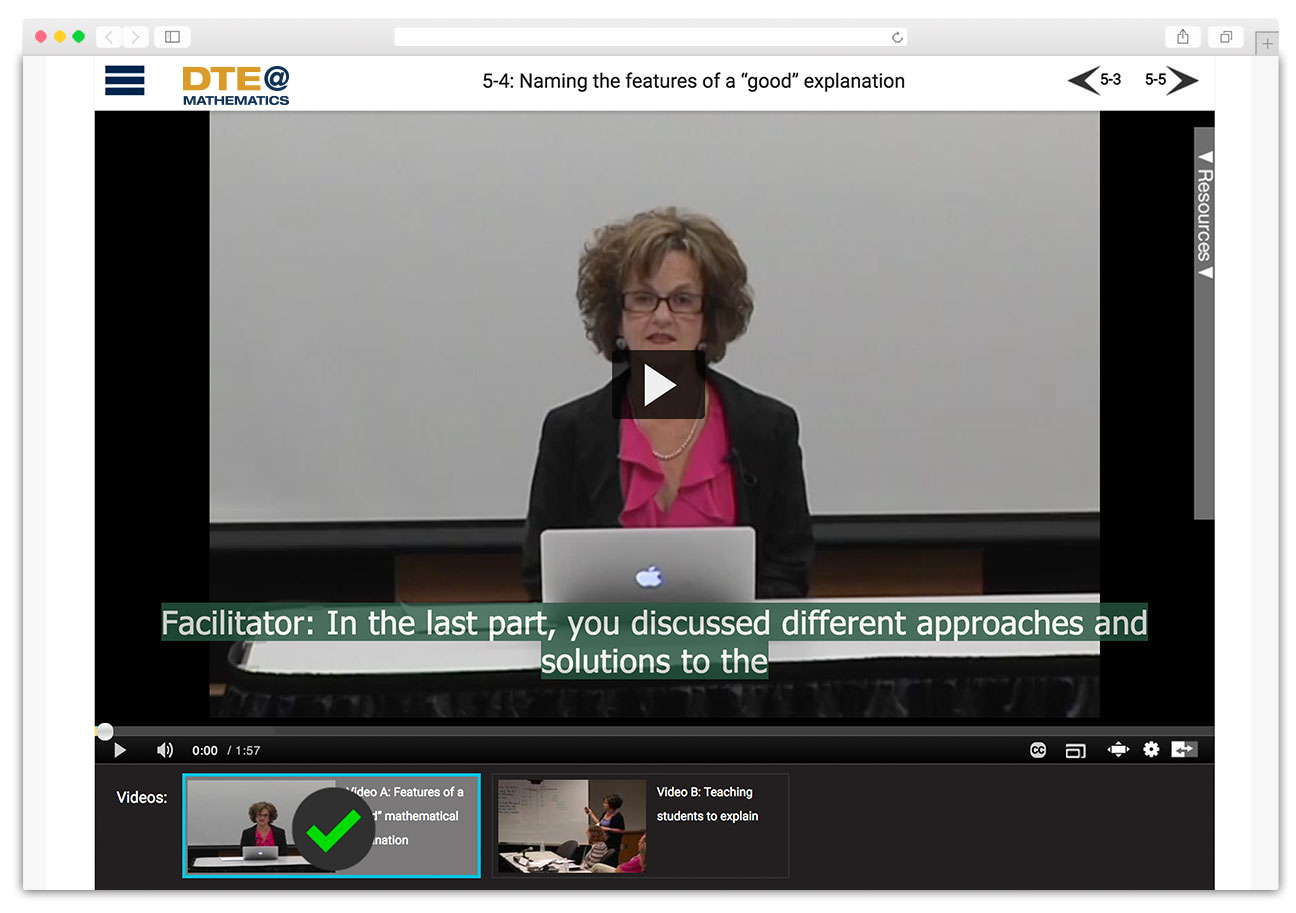Reasoning-and-explanation - Session 5: Producing “good” mathematical explanations
Part 4: Naming the features of a “good” explanation
Overview
This part is focused on naming and describing the features of a “good” mathematical explanation. There is also an opportunity to consider why it is crucial to teach students to explain.
Key Points
Explanations are more than descriptions of how one approaches a problem or what the solutions of a problem are. They also must address why those approaches work and why the solutions are sensible.
A “good” mathematical explanation:
- Has a clear purpose
- Has a logical structure
- Uses representations and language clearly and carefully
- Focuses on meaning and is oriented to the listener(s)
Students need to be taught about mathematical practices, including giving explanations, because:
- Practices ARE basic skills of mathematics
- Students may not be noticing the practices even when they are in use
- Using a practice skillfully and effectively requires understanding why it matters; knowing how it works; and becoming skilled with its use in different situations
Facets of mathematical practices, including explanations, can be made explicit by:
- Integrating work on mathematical practices with work on mathematics topics
- Modeling the use of mathematical practices
- Scaffolding students’ use of mathematical practices
- Establishing and maintaining an environment that supports engagement in mathematical practices
